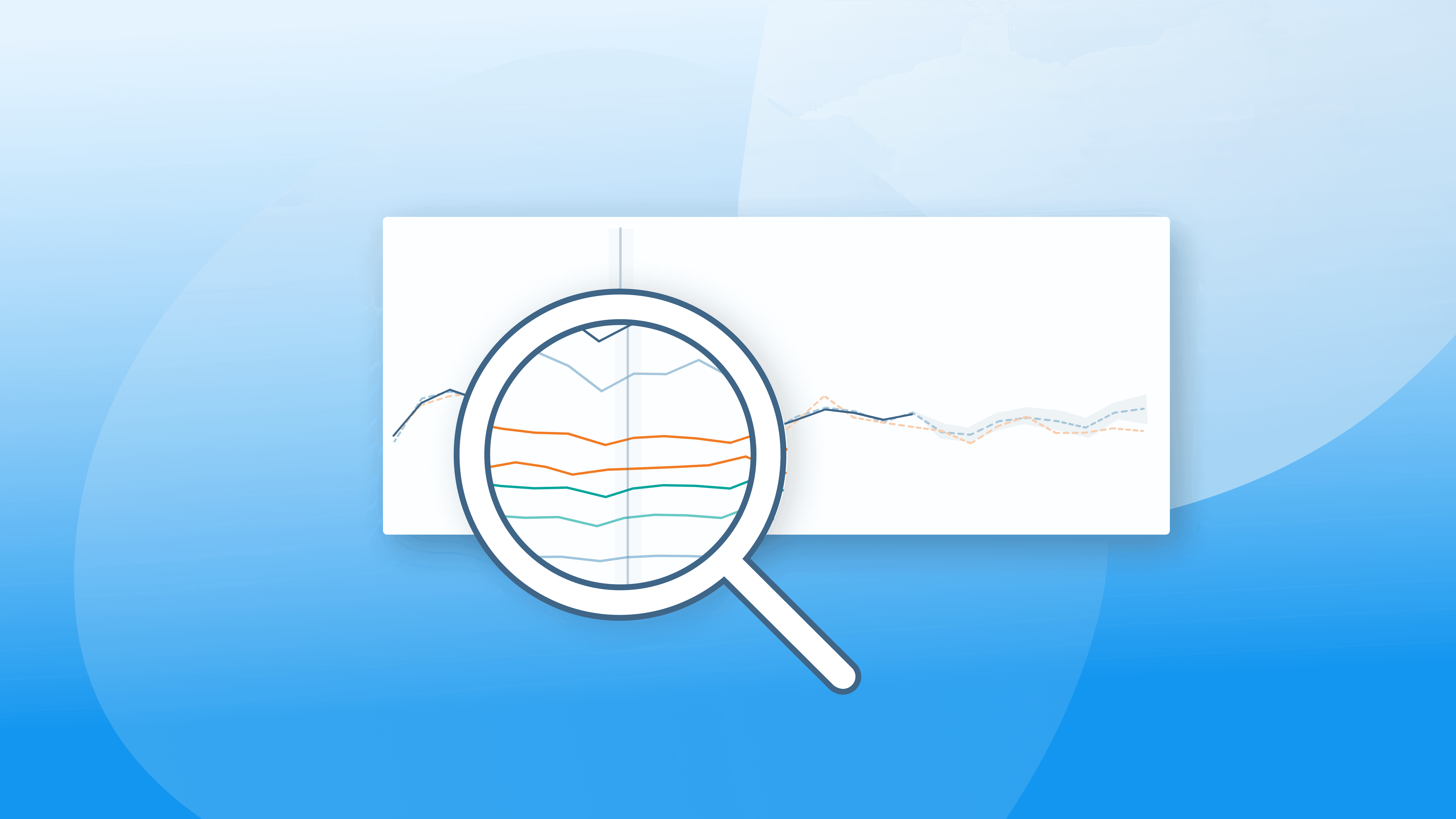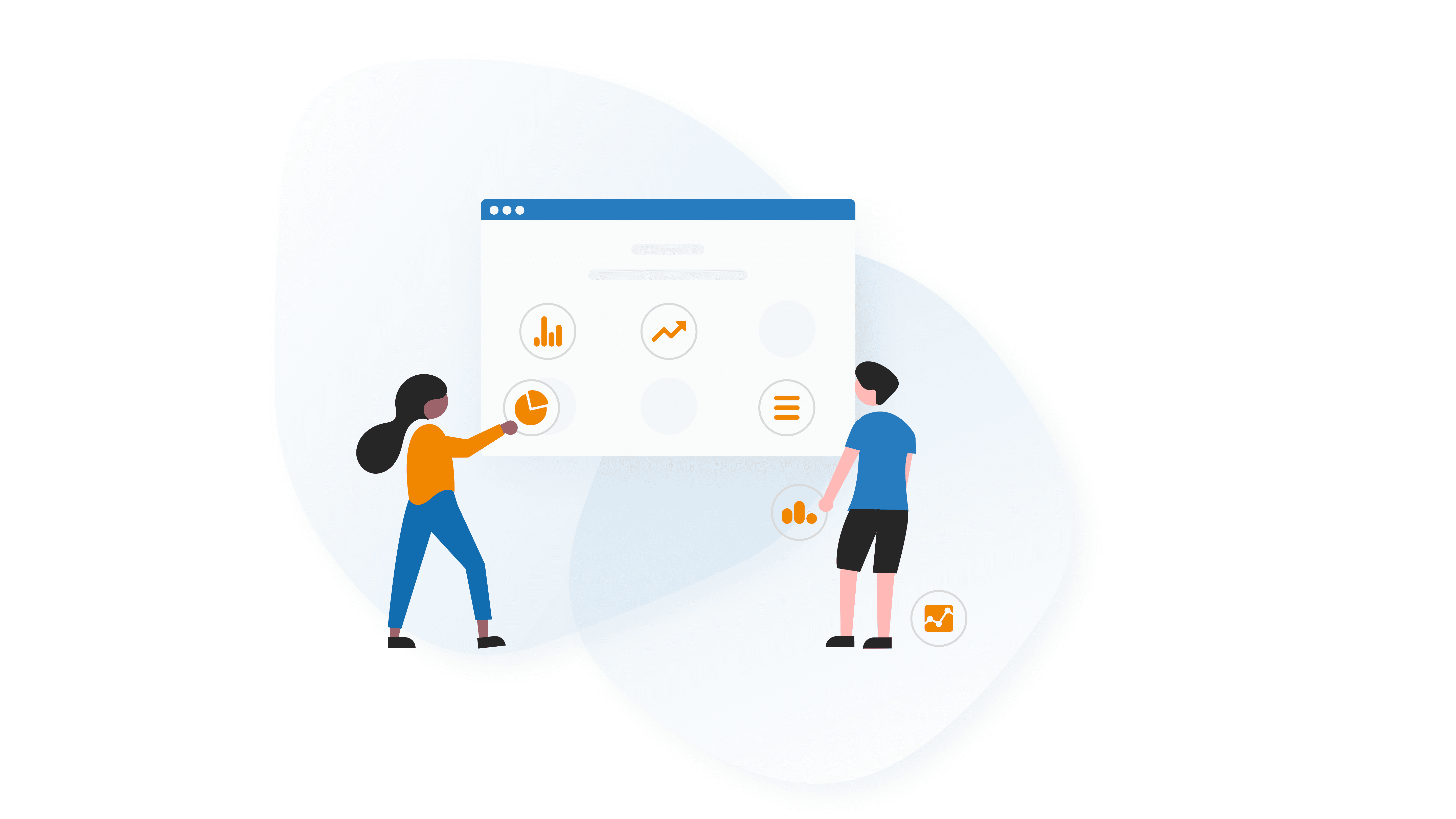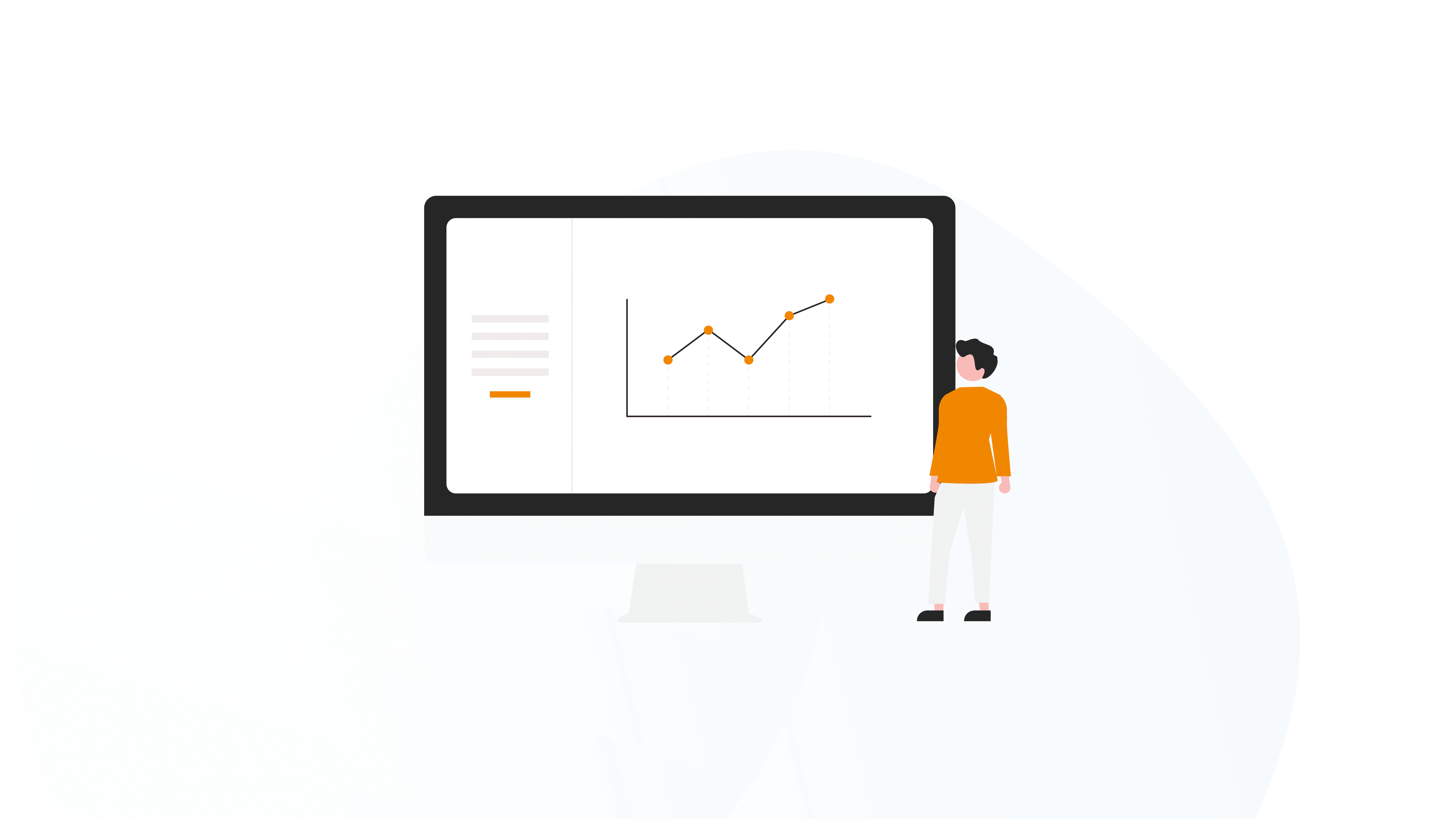

Stefán Baxter
CEO & Founder
Jul 4, 2024
The Power of Intuitive Data Discovery
Making Everyone a Self-Service BI Pro with Interactive, Real-Time Dashboards
Introduction
We've talked a lot about the importance of being data-driven, the stages of data maturity, and even the role of Contextual AI. But what's the point of all this data if it's not easily accessible or understandable? Enter interactive, real-time dashboards and the magic of intuitive data discovery. This is where the rubber meets the road, folks. Let's dive in.
The Rise of Self-Service BI
Business Intelligence (BI) was the domain of data scientists and analysts. But times have changed. With the advent of self-service BI tools, everyone—from the marketing intern to the CEO—can now access, analyze, and act on data. And that's a game-changer.
What Makes a Dashboard "Interactive" and "Real-Time"?
An interactive dashboard is not just a static report; it's a dynamic tool that allows you to filter, sort, and drill down into the data. Add the "real-time" element, and you have a dashboard that updates automatically as new data comes in. Imagine the possibilities!

The Benefits of Intuitive Data Discovery
So, why is this such a big deal? Here's why:
Democratization of Data
No more gatekeepers. Everyone has access to the data they need to make informed decisions.Immediate Insights
Real-time dashboards mean you're always looking at the most current data. No more waiting for weekly reports.Enhanced Collaboration
Collaboration becomes more effective and efficient when everyone can access and understand the data.
The Role of Contextual AI
Remember our friend, Contextual AI? Well, it plays a crucial role here, too. By integrating Contextual AI into your dashboards, you can add an extra layer of intelligence, offering data, insights, and recommendations. It's like having a data scientist built into your dashboard.
Real-World Applications
Here are some scenarios where this comes to life:
Sales Teams
Real-time dashboards can show live sales data, helping teams adapt strategies on the fly.Customer Support
Imagine a dashboard that shows the number of open tickets and the sentiment of those tickets. That's actionable intelligence.Inventory Management
Real-time data can help you avoid stockouts or overstocking, saving both time and money.

Conclusion
Interactive, real-time dashboards with intuitive data discovery features are not just nice-to-haves but must-haves in today's data-driven world. They empower everyone in the organization to become a self-service BI pro, making data not just accessible but actionable.
So, it's time for an upgrade if you're still relying on static reports or outdated BI tools. Trust me, your future self will thank you.
Introduction
We've talked a lot about the importance of being data-driven, the stages of data maturity, and even the role of Contextual AI. But what's the point of all this data if it's not easily accessible or understandable? Enter interactive, real-time dashboards and the magic of intuitive data discovery. This is where the rubber meets the road, folks. Let's dive in.
The Rise of Self-Service BI
Business Intelligence (BI) was the domain of data scientists and analysts. But times have changed. With the advent of self-service BI tools, everyone—from the marketing intern to the CEO—can now access, analyze, and act on data. And that's a game-changer.
What Makes a Dashboard "Interactive" and "Real-Time"?
An interactive dashboard is not just a static report; it's a dynamic tool that allows you to filter, sort, and drill down into the data. Add the "real-time" element, and you have a dashboard that updates automatically as new data comes in. Imagine the possibilities!

The Benefits of Intuitive Data Discovery
So, why is this such a big deal? Here's why:
Democratization of Data
No more gatekeepers. Everyone has access to the data they need to make informed decisions.Immediate Insights
Real-time dashboards mean you're always looking at the most current data. No more waiting for weekly reports.Enhanced Collaboration
Collaboration becomes more effective and efficient when everyone can access and understand the data.
The Role of Contextual AI
Remember our friend, Contextual AI? Well, it plays a crucial role here, too. By integrating Contextual AI into your dashboards, you can add an extra layer of intelligence, offering data, insights, and recommendations. It's like having a data scientist built into your dashboard.
Real-World Applications
Here are some scenarios where this comes to life:
Sales Teams
Real-time dashboards can show live sales data, helping teams adapt strategies on the fly.Customer Support
Imagine a dashboard that shows the number of open tickets and the sentiment of those tickets. That's actionable intelligence.Inventory Management
Real-time data can help you avoid stockouts or overstocking, saving both time and money.

Conclusion
Interactive, real-time dashboards with intuitive data discovery features are not just nice-to-haves but must-haves in today's data-driven world. They empower everyone in the organization to become a self-service BI pro, making data not just accessible but actionable.
So, it's time for an upgrade if you're still relying on static reports or outdated BI tools. Trust me, your future self will thank you.
Introduction
We've talked a lot about the importance of being data-driven, the stages of data maturity, and even the role of Contextual AI. But what's the point of all this data if it's not easily accessible or understandable? Enter interactive, real-time dashboards and the magic of intuitive data discovery. This is where the rubber meets the road, folks. Let's dive in.
The Rise of Self-Service BI
Business Intelligence (BI) was the domain of data scientists and analysts. But times have changed. With the advent of self-service BI tools, everyone—from the marketing intern to the CEO—can now access, analyze, and act on data. And that's a game-changer.
What Makes a Dashboard "Interactive" and "Real-Time"?
An interactive dashboard is not just a static report; it's a dynamic tool that allows you to filter, sort, and drill down into the data. Add the "real-time" element, and you have a dashboard that updates automatically as new data comes in. Imagine the possibilities!

The Benefits of Intuitive Data Discovery
So, why is this such a big deal? Here's why:
Democratization of Data
No more gatekeepers. Everyone has access to the data they need to make informed decisions.Immediate Insights
Real-time dashboards mean you're always looking at the most current data. No more waiting for weekly reports.Enhanced Collaboration
Collaboration becomes more effective and efficient when everyone can access and understand the data.
The Role of Contextual AI
Remember our friend, Contextual AI? Well, it plays a crucial role here, too. By integrating Contextual AI into your dashboards, you can add an extra layer of intelligence, offering data, insights, and recommendations. It's like having a data scientist built into your dashboard.
Real-World Applications
Here are some scenarios where this comes to life:
Sales Teams
Real-time dashboards can show live sales data, helping teams adapt strategies on the fly.Customer Support
Imagine a dashboard that shows the number of open tickets and the sentiment of those tickets. That's actionable intelligence.Inventory Management
Real-time data can help you avoid stockouts or overstocking, saving both time and money.

Conclusion
Interactive, real-time dashboards with intuitive data discovery features are not just nice-to-haves but must-haves in today's data-driven world. They empower everyone in the organization to become a self-service BI pro, making data not just accessible but actionable.
So, it's time for an upgrade if you're still relying on static reports or outdated BI tools. Trust me, your future self will thank you.
Introduction
We've talked a lot about the importance of being data-driven, the stages of data maturity, and even the role of Contextual AI. But what's the point of all this data if it's not easily accessible or understandable? Enter interactive, real-time dashboards and the magic of intuitive data discovery. This is where the rubber meets the road, folks. Let's dive in.
The Rise of Self-Service BI
Business Intelligence (BI) was the domain of data scientists and analysts. But times have changed. With the advent of self-service BI tools, everyone—from the marketing intern to the CEO—can now access, analyze, and act on data. And that's a game-changer.
What Makes a Dashboard "Interactive" and "Real-Time"?
An interactive dashboard is not just a static report; it's a dynamic tool that allows you to filter, sort, and drill down into the data. Add the "real-time" element, and you have a dashboard that updates automatically as new data comes in. Imagine the possibilities!

The Benefits of Intuitive Data Discovery
So, why is this such a big deal? Here's why:
Democratization of Data
No more gatekeepers. Everyone has access to the data they need to make informed decisions.Immediate Insights
Real-time dashboards mean you're always looking at the most current data. No more waiting for weekly reports.Enhanced Collaboration
Collaboration becomes more effective and efficient when everyone can access and understand the data.
The Role of Contextual AI
Remember our friend, Contextual AI? Well, it plays a crucial role here, too. By integrating Contextual AI into your dashboards, you can add an extra layer of intelligence, offering data, insights, and recommendations. It's like having a data scientist built into your dashboard.
Real-World Applications
Here are some scenarios where this comes to life:
Sales Teams
Real-time dashboards can show live sales data, helping teams adapt strategies on the fly.Customer Support
Imagine a dashboard that shows the number of open tickets and the sentiment of those tickets. That's actionable intelligence.Inventory Management
Real-time data can help you avoid stockouts or overstocking, saving both time and money.

Conclusion
Interactive, real-time dashboards with intuitive data discovery features are not just nice-to-haves but must-haves in today's data-driven world. They empower everyone in the organization to become a self-service BI pro, making data not just accessible but actionable.
So, it's time for an upgrade if you're still relying on static reports or outdated BI tools. Trust me, your future self will thank you.


